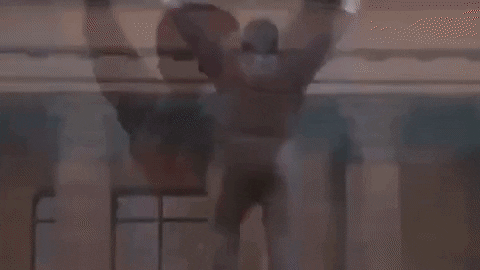This week we’re discussing mistakes. Everybody makes them, but you don’t have to fall into the common pitfalls we keep seeing at competitions. We also share deadlift tips, a new course from one of our coaches, and ask for feedback on what you want in next week’s newsletter.
Resources
New Course: Principles of Deadlifting (Harvesting Strength)
Partner Message
If you don’t know about Brad’s Deals already, you should. Their editors scour the internet every day to find the best prices online. Solid recommendation from us here at Powerlifting Technique.
Where to Find Hoka Shoes Deals 2024
Finding Hoka shoes on sale can be tricky, so we’ve rounded up the top 8 stores to find the best deals for Hoka!
Avoidable Mistakes We See at Powerlifting Competitions
When it comes to competing in powerlifting, showcasing the strength you've worked incredibly hard to build is essential. However, many athletes, especially first-timers, make certain errors that can greatly affect their performance. Let's talk about the five most common mistakes we see at powerlifting meets.
As a coach, I can also share tips on how to avoid them, so you perform at your best at the next powerlifting competition.
Here’s a preview.
The first most common mistake? Focusing too much on weight classes.
So many new powerlifters focus on reaching the next lowest weight class because they think they’ll be able to outrank competitors if they just lose a few pounds. That’s not usually a worthwhile strategy. . . especially for those just getting started.
New Course: Principles of Deadlifting
Want to dig deeper into deadlifts? Check out this new course by Coach Lucero.

And as a thank-you for being part of the community here at Powerlifting Technique, he created a promo code to give you $5 off enrollment. Just use the code PLT in your cart before you check out.
Partner Message
Here’s another partner that might be helpful. Because nutrition plays such an important role in fitness, we wanted to share them!
My go to holiday drink!
The holidays can bring delicious indulgences, but they often lead to digestive discomfort. That’s where Pique’s Nandaka comes in! This blend of Pu’er Black and Green Teas, adaptogenic mushrooms, and ceremonial-grade Peruvian cacao offers gentle, sustained energy without the crash. With just 82mg of slow-release caffeine, it’s perfect hot or cold.
As the holiday season approaches, consider gifting Nandaka to loved ones seeking a healthier coffee alternative. Plus, enjoy 20% off on Pique’s best sellers! Don’t miss this chance to gift wellness!
The Thing Everybody Gets Wrong About Deadlifts
There’s one main thing everybody gets wrong about the deadlift. That’s hip position. Here’s what to know about fixing your deadlift. The key is all in the hips.
On a related note, here’s our guide to proper deadlift hip position.
So what is the best hip position for deadlifts?
The best position for your hips in the deadlift will be both “high” and “close” to the barbell. Athletes with longer legs will have a higher hip position compared with those with shorter legs. As well, heavier athletes will have a wider hip position compared with those who are lighter.
The full guide also discusses:
Factors that influence your hip position for deadlifts
Rules to follow when finding your hip position for deadlifts
Top deadlift mistakes and how to avoid them
Coach Lucero also talks about how deadlift is a single-phase movement. He offers detailed solutions, such as focusing on eccentric deadlifts and adjusting the number of sets and reps to enhance first rep strength. These techniques aim to improve mechanics and help viewers achieve a stronger deadlift.
Why is Hip Position Important?
Hip positioning is extremely important for anyone seeking proper deadlift form, especially for powerlifters.
Not having the right position creates a mechanical disadvantage. It reduces overall lift capacity, makes lifts less efficient, and doesn’t appropriately engage the proper muscles.
Having the hip position too high or too low may mean some muscle groups are disadvantaged or you end up traveling too much range of motion to execute the lift.
What do you need help with?
The Best All-in-One Home Gyms Evaluated
A while back, we ranked the best all-in-one home gyms for powerlifters. Now is a good time to consider these again because Black Friday is coming up. Sure, it’s a made-up holiday. But it’s also the best time of year to score discounts on seriously-expensive home gym equipment.
If you’re in the market for an upgrade, check the prices from now through the end of the month. Some Black Friday sales have already started. Some will start next week. And a few will start on Black Friday itself.
Just interested in our top choice? Here’s a spoiler: It’s the Rogue Combo Rack. It was made with the International Powerlifting Federation to be a two-in-one solution for bench and squat. That means it’s IPF-certified for competition use.
Those looking for a budget option, especially beginners, might prefer the RitFit Power Cage. It’s truly all-in-one, and the cost doesn’t break the bank.
Underrated Video: Time Under Tension vs. Volume
Here’s a conversation we need to have. Should powerlifters focus on overall volume or time under tension to grow muscle as a powerlifter?
Full Rack vs. Half Rack
Let’s take a deeper look at one of the most essential pieces of equipment for any gym – the power rack. As pros with years of experience, we've seen the transformative impact the right equipment can have on someone’s workout routines and fitness journeys.
So what’s the difference between these, and when should you invest in one over the other?
Here’s the short version.
Full racks are more versatile, offer more safety features, and can be used for more exercises. But they’re also larger and more expensive. Half racks are more compact and less expensive but do not offer as many safety features.



